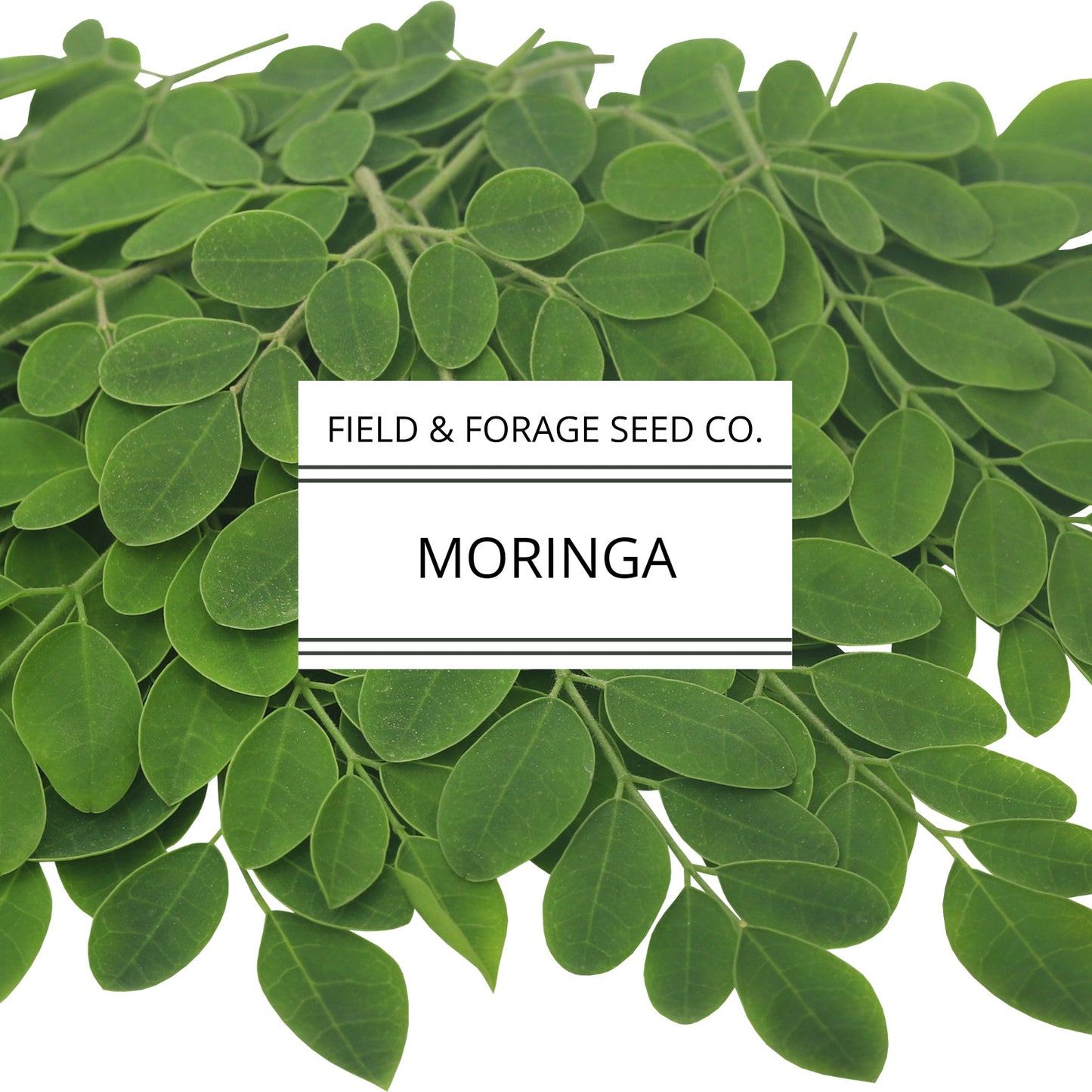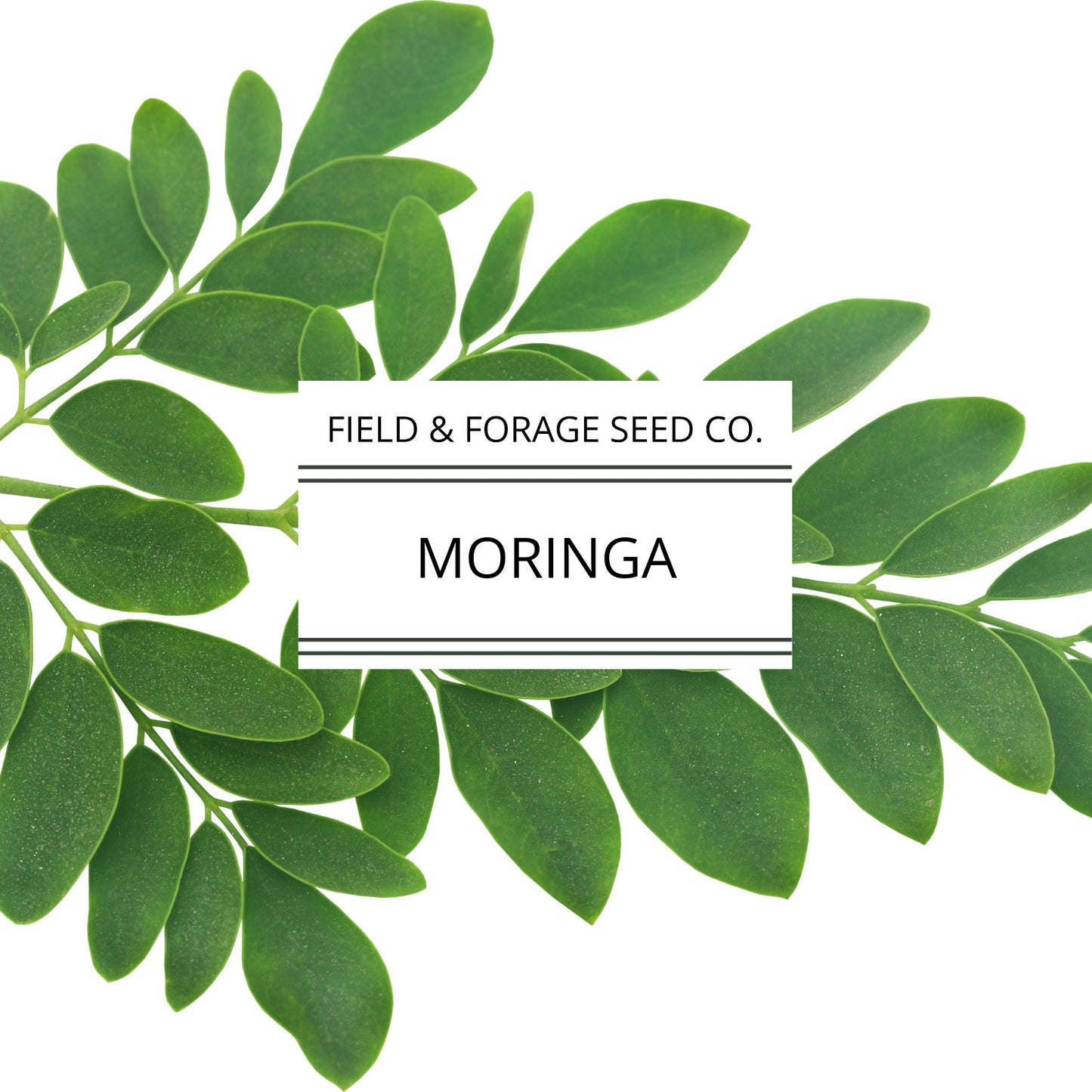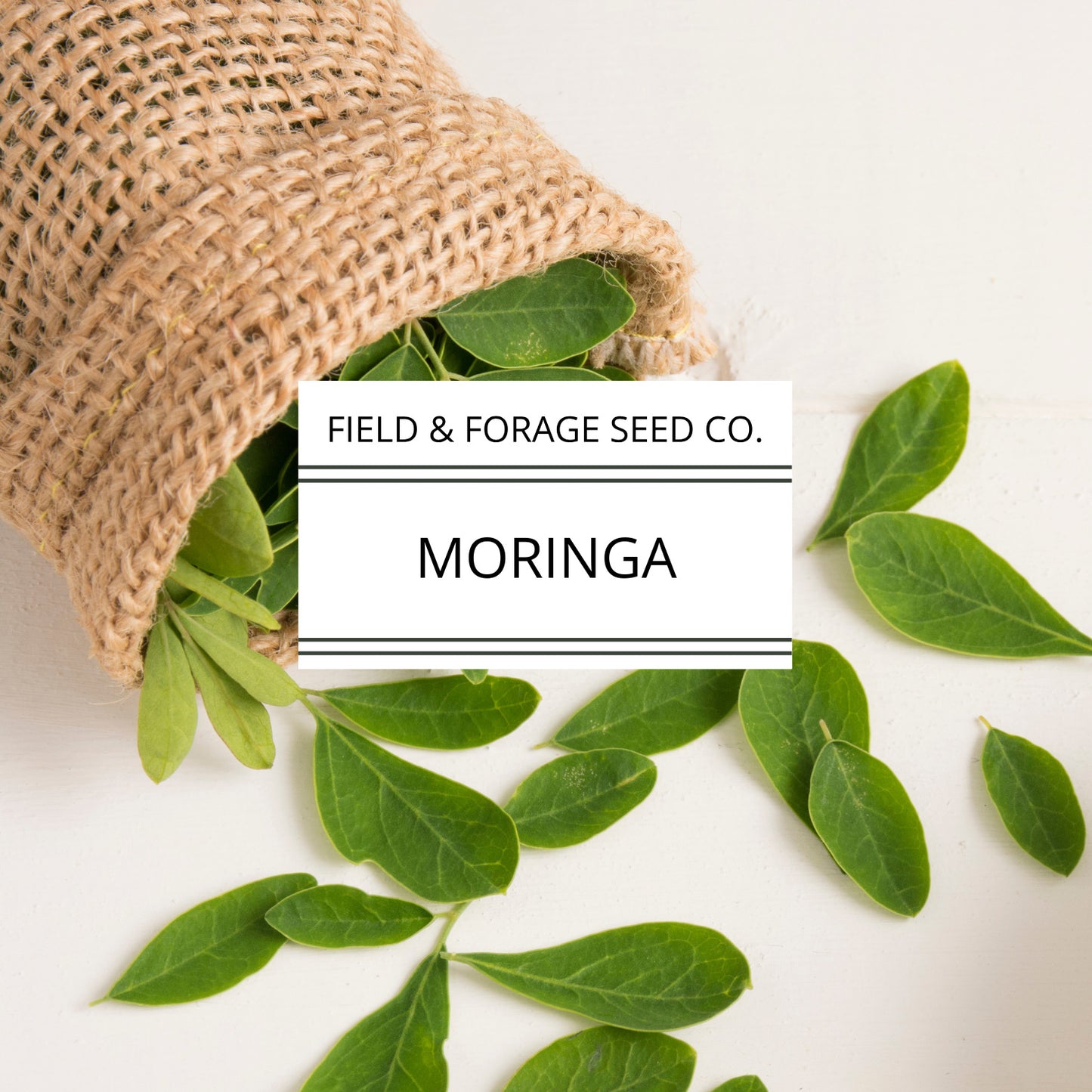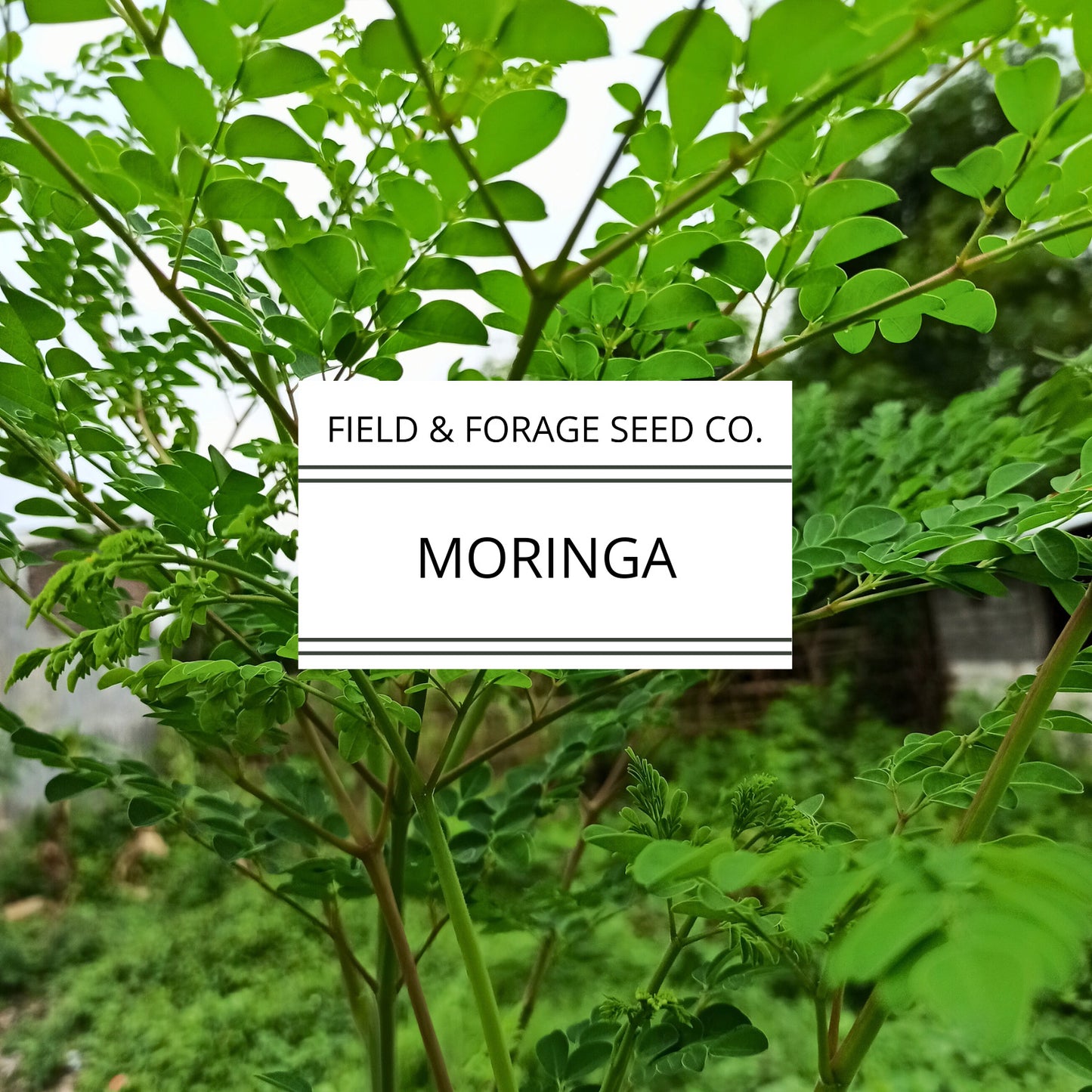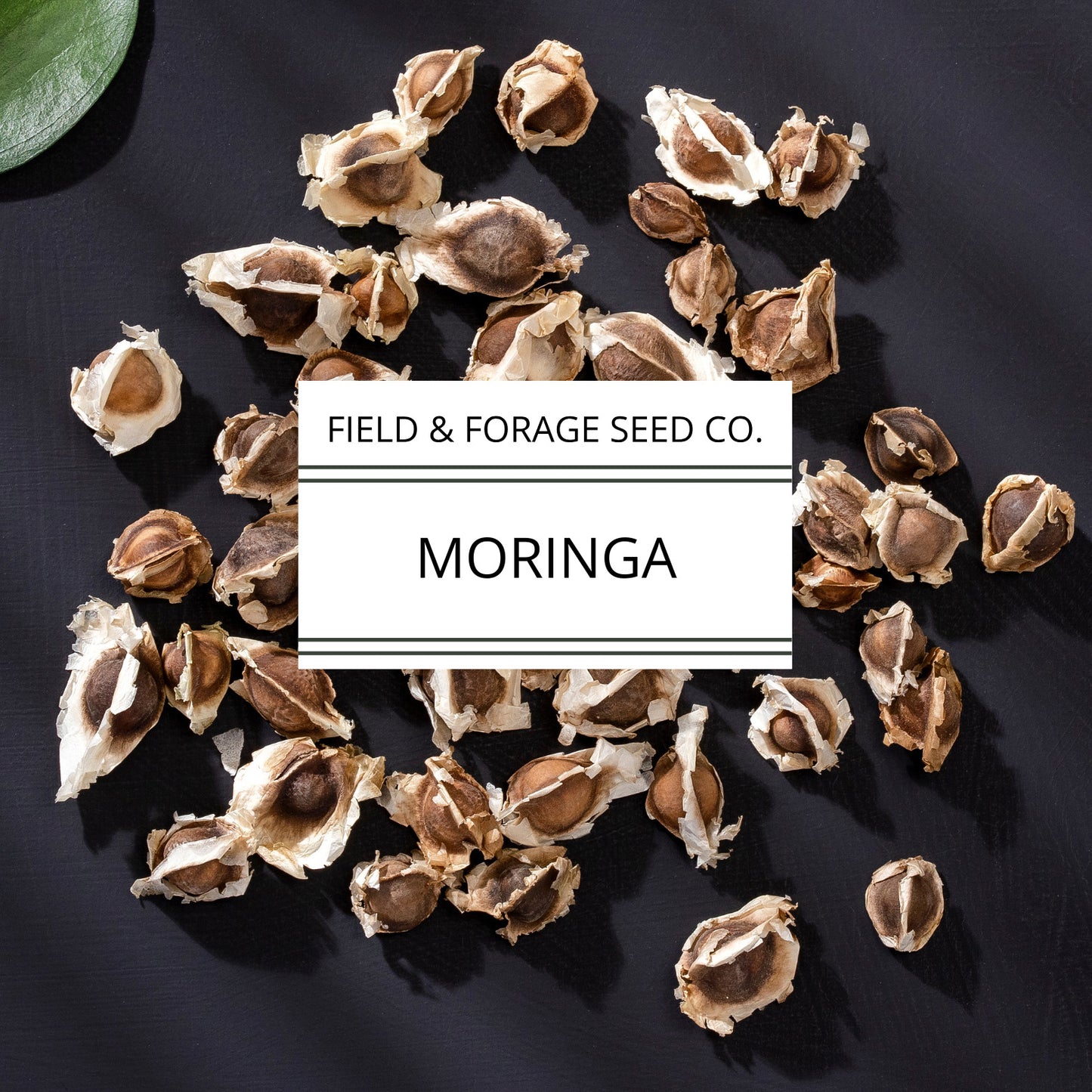Field and Forage Seed Co.
Moringa | Moringa oleifera | Heirloom | Non-GMO | 15 Seeds
Moringa | Moringa oleifera | Heirloom | Non-GMO | 15 Seeds
Couldn't load pickup availability
Moringa | Moringa oleifera | Seeds | Heirloom | Non-GMO | 15 Seeds
Often called the “Miracle Tree,” Moringa oleifera is a fast-growing, nutrient-dense plant with edible leaves, pods, and seeds. Native to parts of Africa and Asia, moringa is prized for its culinary, wellness, and permaculture value. The tender leaves are rich in vitamins and protein, while the tree itself can thrive in poor soils and arid climates—making it a garden powerhouse.
Grown as an annual in cooler zones or a perennial tree in tropical regions, moringa is a rewarding addition to edible landscapes, wellness gardens, and food forests.
SKILL LEVEL: Intermediate
Moringa requires warmth, space, and patience. While easy to germinate, it thrives best in sunny climates and benefits from regular pruning in container or backyard settings.
Pollinator Friendly:
• Blooms attract bees and butterflies
• Supports beneficial insects during flowering phase
Planting & Care Details:
• Light: Full Sun
• Plant Height: Up to 10–15 ft in first year (in ground)
• Spacing: 3–6 ft apart if growing as trees
• Watering: Moderate; drought-tolerant once established
• Soil: Well-drained, sandy or loamy
• Frost Sensitivity: Very tender; overwinter indoors in Zones 9 and colder
• Zones: 9–11 (perennial); grow as annual or in containers in cooler zones
GERMINATION INSTRUCTIONS:
Nick or soak seeds for 24 hours before planting. Sow ½–1" deep in warm, well-draining soil. Germinates in 7–14 days at 75–85°F. Start indoors in cooler climates.
TIPS FOR SUCCESS:
• Grows best with warm temperatures and plenty of sun
• Prune young plants to encourage branching and leaf production
• Can be grown in containers and overwintered indoors in cold zones
• Harvest young leaves often for the most tender, flavorful growth
Culinary & Garden Uses:
Use fresh or dried leaves in smoothies, soups, teas, or as a superfood powder. Pods can be cooked like green beans. Seeds can be pressed for oil or used for water purification (research recommended).
Share
